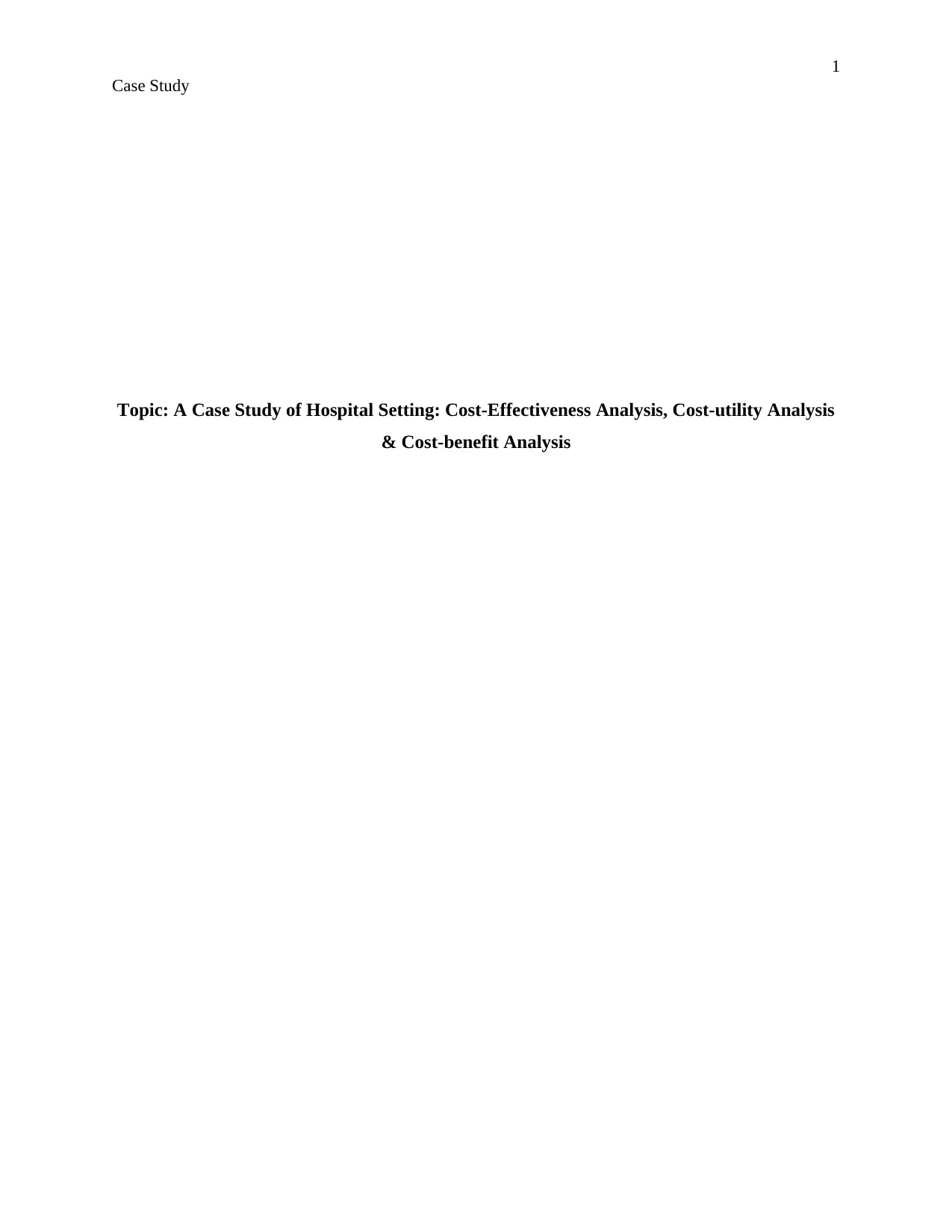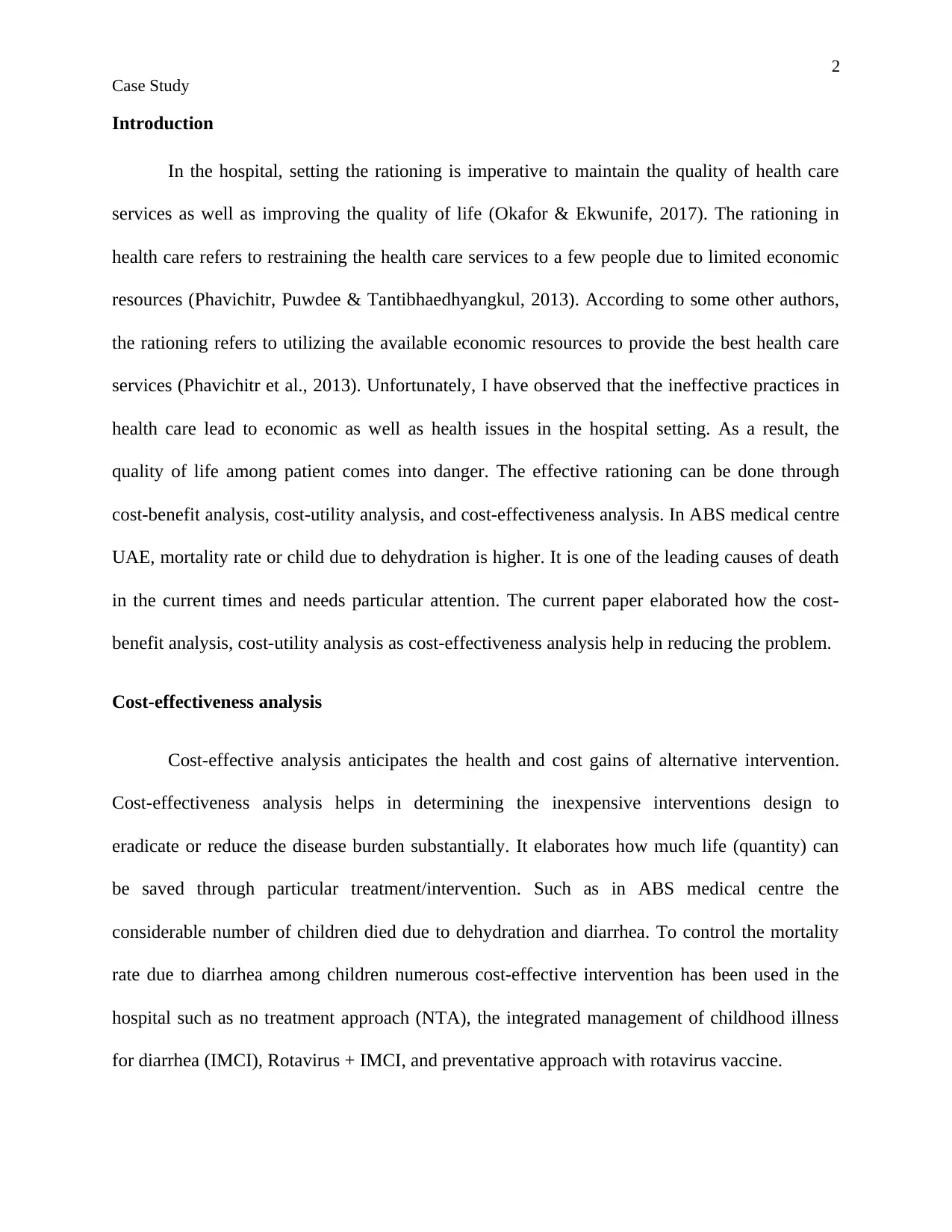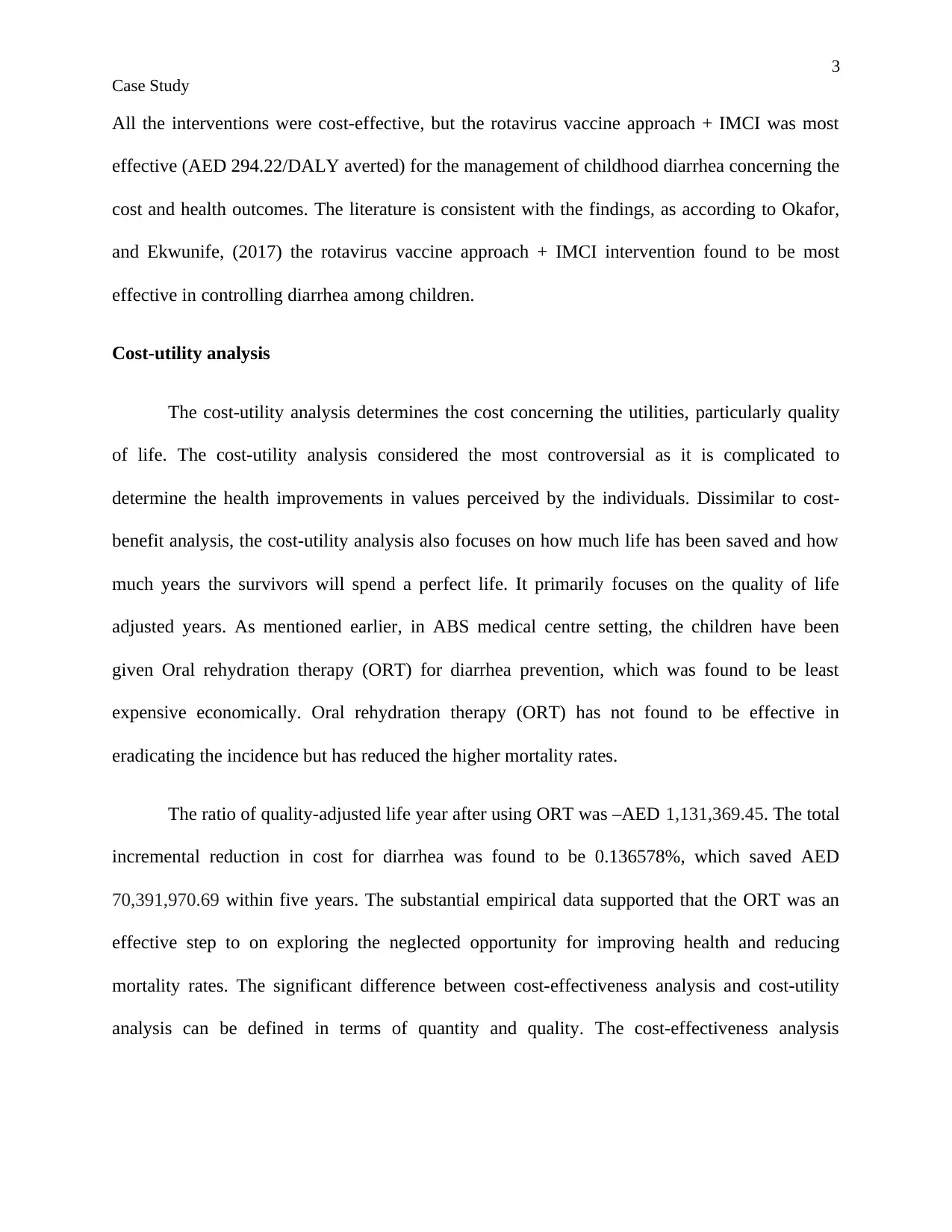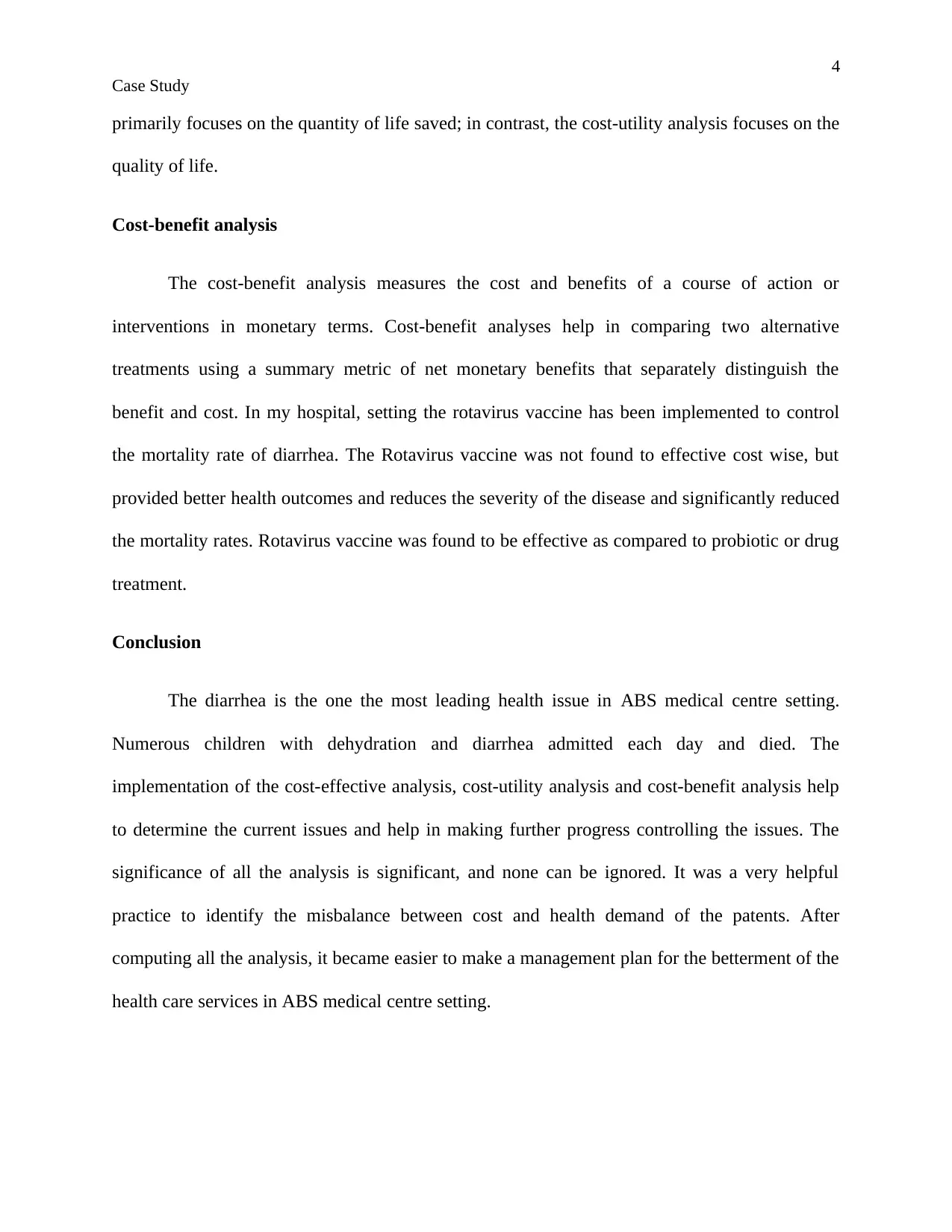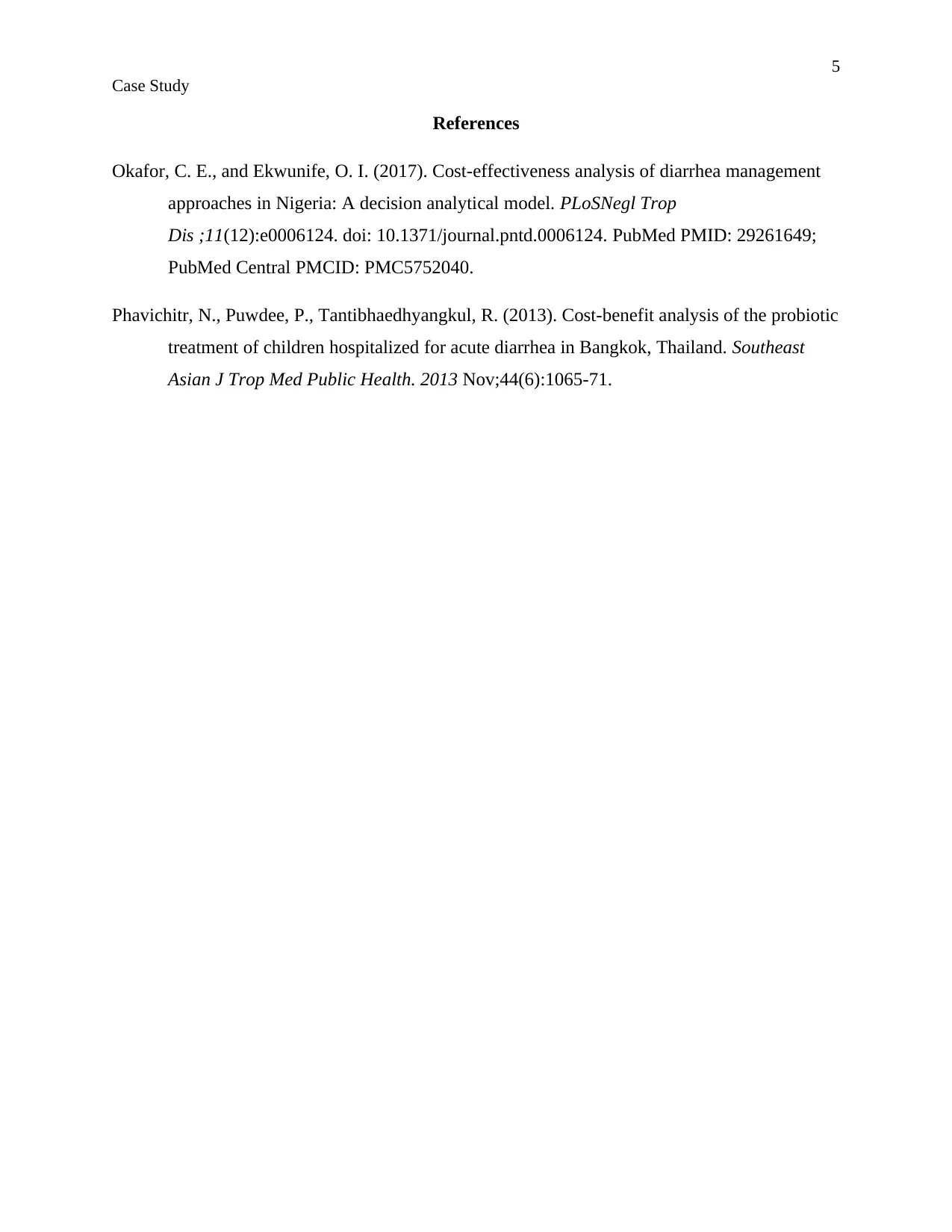This case study explores the use of cost-effectiveness analysis, cost-utility analysis, and cost-benefit analysis in a hospital setting. It discusses the importance of rationing healthcare services and how these analyses can help in reducing health issues and improving the quality of life for patients. The study focuses on the ABS medical centre in UAE and specifically looks at the management of childhood diarrhea and dehydration. The findings show that cost-effective interventions, such as the rotavirus vaccine approach + IMCI, can significantly reduce mortality rates. The cost-utility analysis highlights the importance of considering the quality of life when evaluating healthcare interventions. The cost-benefit analysis measures the cost and benefits of interventions in monetary terms. Overall, these analyses provide valuable insights for healthcare management and decision-making.
![[object Object]](/_next/static/media/star-bottom.7253800d.svg)
![[object Object]](/_next/static/media/star-bottom.7253800d.svg)
